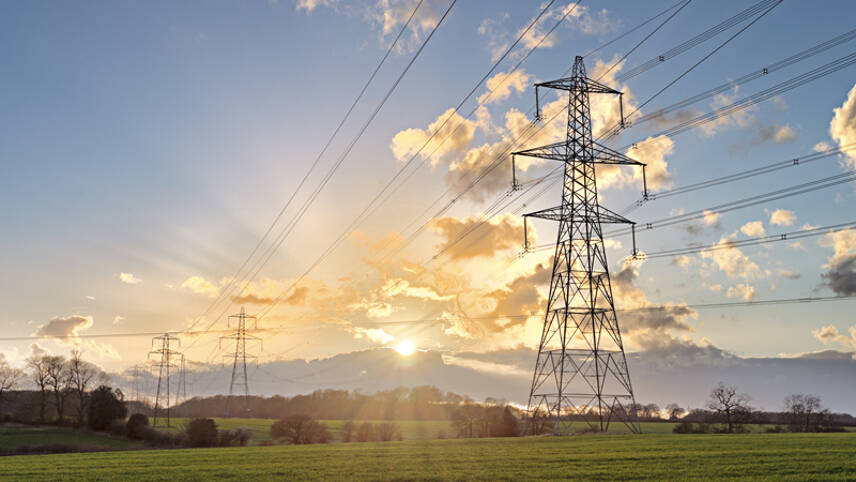Register for free and continue reading
Join our growing army of changemakers and get unlimited access to our premium content

Huge shifts are required across energy, transport, industry and buildings
The Energy Security and Net-Zero Secretary made the claim in a post on X this morning (25 March), citing new research from Aurora Energy Research that was commissioned by Policy Exchange, a conservative think tank.
The top-line finding of the research was that reaching Labour’s 2030 energy generation mix target would require an additional £116bn. The Party has pledged to bring unabated gas-fired power stations offline by 2030, scaling renewables, energy storage and nuclear instead to maintain energy security.
In contrast, the Conservative Party has pledged to make the same transition by 2035. It has also committed for 95% of the power generation mix to be ‘clean’ by 2030 as an interim goal.
Policy Exchange has described the accelerated timeline “a fundamentally different proposition” because it would not allow enough time for large-scale nuclear to come online, nor to commercialise next-generation small modular nuclear reactors (SMRs) or scale bioenergy with carbon capture and storage (BECCS).
This would, therefore, necessitate a more rapid build-out of renewables and energy storage. Aurora estimates that 0.7GW of new battery storage capacity would need to be built each year through 2030 to meet the Conservatives’ pathway, compared with 2.5GW for Labour’s. Other annual differences include:
- Onshore wind: 1.2GW/year under Conservatives, 2.1GW/year under Labour
- Offshore wind: 3.2GW/year under Conservatives, 6GW/year under Labor
- Solar: 2.3GW/year under Conservatives, 4.3GW/year under Labour
Aurora Energy Research has called the delivery of the Labour-backed 2030 target “infeasible within the timeframe”.
But there are other barriers than finance, including long lead times relating to outdated planning policies, skills shortages and supply chain constraints for critical minerals, metals and components.
In the small print of the report, Aurora concludes that delivering the Tories’ own power pledges would require an additional £104.6bn of investment.
As such, Coutinho’s claim is false – the cost difference between her Party’s plan and that of the opposition is £11.4bn, not “almost £100bn”.
The report notes that, in either scenario, “extensive policy intervention and central support” is needed, amounting to a “system overhaul”.
A Labour spokesperson told edie that the Party believes it can crowd in the billions of private investment needed to achieve its power transition plans and forge ahead with reforming planning and grid connections processes.
The spokesperson also blamed the need for such stark, systemic change on past inaction by the Conservatives. They said: “The Conservatives have blocked onshore wind, crashed the market for offshore wind, stalled on energy efficiency, and failed to tackle an out-of-date planning system that has meant holding back over £200bn of private sector investment.”
On onshore wind, decision-makers at RWE and Orsted recently told Politico that planning reforms from the incumbent Government to reverse David Cameron’s effective ban on development do not go far enough to make the British market an attractive proposition.
On offshore wind, the Government recently confirmed plans to pay developers for ‘non-price factors’ like community benefits and local sourcing, on top of an uplift in the maximum auction strike price. These changes were made after the most recent auction round failed to attract any offshore wind bids, with developers bemoaning a lack of Government consideration for rising supply chain costs.
Recommendations for interventions
The Conservative Party have been warned several times before that it has not yet strategically planned to deliver its 2035 target. These concerns have been raised by MPs and energy industry experts alike.
The new report makes several recommendations for changes to be pledged ahead of the general election, including:
- Signing two or more agreements in principle for SMR projects by the end of 2024
- Accelerating decision-making on at least one large nuclear power plant
- Continue reforming the onshore wind planning process until it is a level playing field with offshore
- Intervene to accelerate grid investment and ensure developers provide benefits to communities living near new pylons
- Setting out a clear timetable, target capacity and forecast budget allocation for at least the next three annual auction rounds for the Contract for Difference (CfD) scheme, to provide certainty for business


Please login or Register to leave a comment.